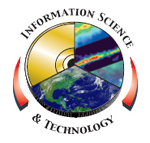
Please Note: The content on this page is not maintained after the colloquium event is completed. As such, some links may no longer be functional.
Lyle Long
Massively Parallel Computers for Human Level (and Beyond) Intelligence
Wednesday, December 7, 2016
Building 3 Aud 11:00 AM
(Cookies available at 10:30 AM)
This talk will describe possible approaches to achieving human-level intelligence. Artificial intelligence began in roughly 1956 at a conference at Dartmouth University. The participants, and many researchers after them, were clearly overly optimistic. As with many new technologies, the technology was oversold for many decades. Computers at the time could only do about 16,000 operations per second. Computer processing power, however, has been doubling every two years thanks to Moore's law, and growing even faster due to massively parallel architectures. Finally, 60 years after the first AI conference we have computers on the order of the performance of the human brain (1016 operations per second), even if they are a million times less efficient (in terms of power and space) than the human brain. The main issues now are algorithms, software, and learning. We have excellent models of neurons, such as the Hodgkin-Huxley model, but we do not know how the human neurons are wired together, or how carefully we need to match brain architecture, but human-brain scale simulations are now feasible on massively parallel supercomputers. With careful attention to efficient parallel computing, event-driven programming, table lookups, and memory minimization these simulations can be performed. Artificial consciousness and emotions will also be possible.
Dr. Lyle Long is a Distinguished Professor of Aerospace Engineering, Computational Science, Neuroscience, and Mathematics at The Pennsylvania State University. He has a Doctor of Science degree from George Washington University, a Master of Science degree from Stanford University, and a Bachelor of Mechanical Engineering from the University of Minnesota. In 2007-2008 he was a Moore Distinguished Scholar at the California Institute of Technology, has been a visiting scientist at the Army Research Lab, Thinking Machines Corporation, and NASA Langley Research Center, and was a Senior Research Scientist at Lockheed California Company. He received the Penn State Engineering Society Outstanding Research Award, the 1993 IEEE Computer Society Gordon Bell Prize for achieving highest performance on a parallel computer, and a Lockheed award for excellence in research and development. He is a Fellow of the American Physical Society (APS), and the American Institute of Aeronautics and Astronautics (AIAA). He has written more than 260 journal and conference papers.
IS&T Colloquium Committee Host: Jacqueline Le Moigne
Sign language interpreter upon request: 301-286-7040
